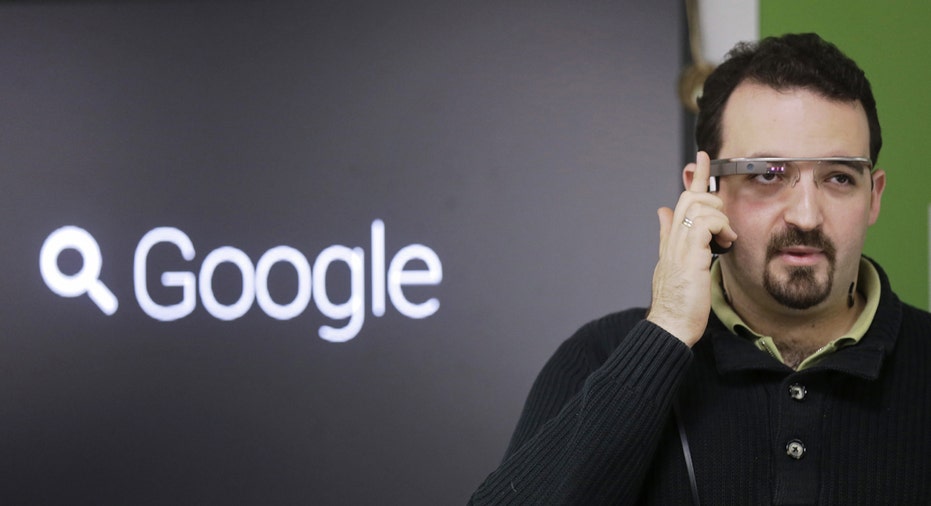Will Snapchat Spectacles Suffer the Same Fate as Google Glass?

You don’t have to wait for a random vending machine to pop up near you to get your hands on a pair of Snap’s video-recording sunglasses. Spectacles are now available online at the same price of $129.99. And they’re not likely to be the last hardware product from Snapchat’s parent company.
When Snapchat expanded beyond its core messaging app and launched Spectacles last September, it changed its name to Snap and repositioned itself as a camera company. With its long-anticipated IPO roadshow underway in London and shares expected to begin trading on March 2, it would be nice to know what that cryptic positioning means.
Aside from a few hip-colored sunglasses, the company doesn’t make cameras. And Snap derives its revenue entirely from advertising on its highly engaging ephemeral messaging platform.
The question is, what exactly does Snap’s enigmatic CEO Evan Spiegel have up his sleeve, post-IPO? Will Snap remain a software company that also sells hardware, like Alphabet (NASDAQ:GOOGL) subsidiary Google, or attempt a risky transition to become more of a device company like Apple (NASDAQ:AAPL)?
Remember that Facebook (NASDAQ:FB) once had a smartphone before Mark Zuckerberg figured out that wasn’t a very bright idea after all and decided to stick to code. You probably don’t even remember what it was called, and neither do I, which tells you something about what an enormous flop it was.
A couple of weeks ago, a company called Mediakix was out peddling the notion that Snap might actually make a phone, but it was all just speculation based on 36 suspicious recent hires from Motorola, Apple and some other mobile companies. I reject the notion for one simple reason: Spiegel’s too smart to make such a boneheaded move.
While it’s true that consumers primarily use camera phones to take pictures, making and marketing smartphones is another matter entirely. Even if Snap outsources the design and manufacturing, there are still loads of headaches like negotiating with service providers, licensing software and intellectual property and dealing with Google Android.
Why bother with all that baggage when your app is already installed on everyone else’s smartphone? Besides, Snap aims to make mobile and video-first communication fun and easy. That describes Snapchat perfectly. And the same is true of Spectacles, which take 10-second Snaps of whatever’s in your visual field and seamlessly download them to the app.
From a hardware standpoint, it’s far more likely that Spiegel will continue down the current path – not just because Spectacles are cool, easy and hands-free, but because glasses are the most likely form-factor for the next big thing: augmented reality (AR).
Snapchat has been quietly rolling out creative features to augment Snaps, including facial recognition technology that adds cool effects to pictures and videos. They’re surprisingly fun and engaging, and while today’s Spectacles just take and transmit video clips, it isn’t hard to imagine the addition of AR functionality down the road.
In a recent interview, Apple CEO Tim Cook called AR “a big idea like the smartphone.” He’s right; it is. Maybe bigger. AR can merge real and digital worlds in a way that makes the man-machine interface – the dreaded two-dimensional display – disappear. And the form-factor for enhanced AR applications is clearly going to be smart glasses.
Google Glass had the right idea but the wrong timing, rollout and price-point. Folks weren’t ready for the creep factor of being recorded without their permission, but with the right positioning and functionality, I believe consumers will warm up to the idea. The potential to augment our work and personal lives with real-time, hands-free information, communication and entertainment is practically limitless.
Spiegel and company will likely continue down that path, and I think it’s the right one. Snap will face intense competition from Lenovo and a host of startups that demoed smart glasses at this year’s Consumer Electronics Show. Then of course there’s Magic Leap, the well-funded unicorn that’s also backed by Google. Will smart glasses be bigger than smartphones? We’ll find out soon enough.



















